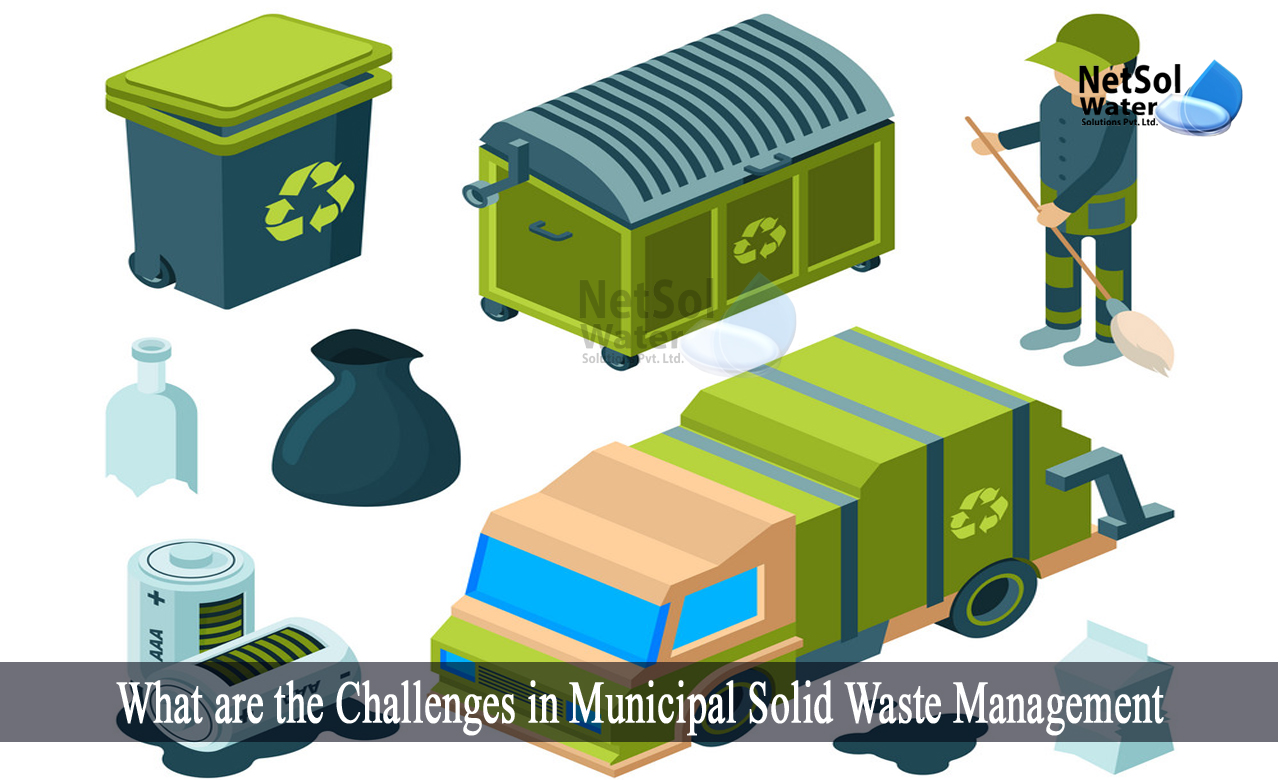What are the Challenges in Municipal Solid Waste Management?
Municipal Solid Wastes (MSW) are the items that are utilized and then, discarded. It primarily originates in homes, schools, hospitals, and public areas. The wastes are classified as residential, commercial, and retail wastes. Over the last few decades, economic growth and population growth have increased the rate of MSW generation.
As a result, MSW management had to face several issues and challenges.
Challenges of Municipal Solid Waste Management (MSWM)
For many communities, the considerable technological, financial, and capacity demands of solid waste management, makes proper MSWM a significant task. Several external factors aggravate this issue. Economic expansion, for example, causes waste generation and greater consumption.
Furthermore, economic progress frequently leads to the purchase of new sorts of items, such as electronics that are harder to recycle. Population growth causes an increase in waste generation. Therefore, this increase frequently comprises of heavily populated areas of towns and cities, which might worsen waste collection challenges.
· Scarcity of funds
The main issue is lack of funds. The scarcity may limit operational expenditures such as maintenance, fuel, and payroll, or it may result in a lack of capital for the purchase of new equipment and vehicles.
Problems can also arise as a result of the administrative procedures, used to approve expenditure on backup components, and other capital equipment.
· Illegal dumping and littering
Citizens drop or disperse waste in roadways, watercourses, and open places for a variety of reasons. Improved practice and public education efforts have been shown to have a favourable influence.
However, it is also important to understand why waste is not placed in authorized containers, and how waste ends up in public locations.
· Use of improper vehicles
Two typical mistakes are made when selecting trucks for waste pickup. One of them is to avoid using modern compactor trucks, if they are not appropriate for the local conditions, especially:
- Maintenance requirements
- Waste classification
- The operator's financial capacity
- Roads of access
Another common error is to employ vehicles built for materials with a significantly higher density, than solid waste. As a result, the load-carrying capacity is insufficient, and productivity is low.
Further, difficulty with many waste collection vehicles is that the waste must be lifted high into the vehicle, and no suitable lifting device is provided. As a result, it is done manually in an inefficient and unsanitary manner.
· Refusing to recycle
Different methods are required for different conditions. Recycling can have both environmental and economic benefits, if done properly.
Because, of the high number of informal sector employees who separate and sort mixed waste far more effectively, than the semi-mechanized procedures, the pricey technologies employed in industrialized countries are generally not needed, in low and middle-income countries.
Recycling in the informal sector costs the local government nothing. Everywhere, efforts are needed to encourage at-source segregation. Cities with effective informal sector recycling should seek for methods to help the informal sector grow, rather than attempting to replace informal recycling with municipal systems.
· Lack of public participation
Solid waste collection is a service that necessitates the cooperation and participation, of a sizable number of citizens. If using street dumpsters is cumbersome, people may place their waste beside a container rather than in it.
This is one of the issues that smart bins can help to avoid. Whether, you are a smart municipality or a private waste collection company, you want a comprehensive waste management system, to enable your team's day-to-day operations function efficiently and seamlessly.
Conclusion
Municipal recycling and waste concerns are difficult, especially at large scales. The accumulation of waste and recycling is only the beginning. As consumer items become more accessible and complex, the broad and expanding range of materials that wind up in that pile exacerbates these issues.
Additionally, because waste varies from common residential waste to business waste, and recycling to construction, bulk, and yard waste, there can never be a one-size-fits-all solution. Standardization is also complicated by widely disparate topographies, and demographic characteristics.
How can we help?
The waste and recycling industry is complex, and greater transparency is essential for productive and long-term solutions.
Netsol Water can help everyone get a lot closer to fixing the environmental and logistical difficulties, which our towns and states are dealing with today. Finally, these solutions will assist cities and states in meeting their ambitious goals, while continuing to lead in environmental stewardship and innovation.
Netsol Water is Greater Noida-based leading water & wastewater treatment plant manufacturer. We are industry's most demanding company based on client review and work quality. We are known as best commercial RO plant manufacturers, industrial RO plant manufacturer, sewage treatment plant manufacturer, Water Softener Plant Manufacturers and effluent treatment plant manufacturers. Apart from this 24x7 customer support is our USP. Call on +91-9650608473, or write us at enquiry@netsolwater.com for any support, inquiry or product-purchase related query.



